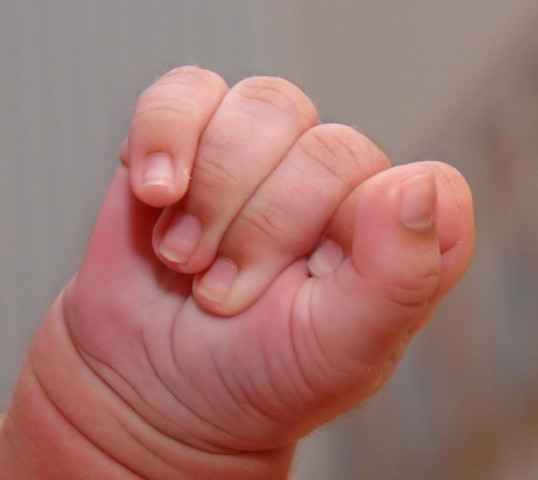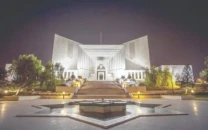Crammed: Expectant moms irked by gawkers
Patients complain of discomfort at a congested gynaecology ward in Pims.

Raheela Najam, along with her mother-in-law, was seated on the floor while leaning against a large dustbin placed in the corner, while Shehla Mazhar, a resident of Murree, found it difficult to breathe in the poorly ventilated area. She had been seated on the floor for three hours, with no information about the patient she was attending and no permission to visit her in the labour room.
These sights are all too common at the operation theatre/labour room area of the Obstetrics and Gynaecology department, Pakistan Institute of Medical Sciences (Pims).Women undergoing labour, patients and their attendants experience a lot of inconvenience due to the lack of seating arrangements in the area. The department is visited daily by 300-400 patients, where approximately 30-40 deliveries occur every 24 hours.
The attendants, including males and females, resort to sitting on the floor or leaning against the wall, along with their children or belongings. Not only is this an inconvenience to the waiting attendants, it also makes the small area congested and suffocating.
The absence of seats, however, is not the only source of irritation for female attendants. Samina Bibi, who had come all the way from Taxila, was irked by the presence of strange men in the area.
She observed, “It looks odd and is embarrassing to the women when they are brought out in stretchers in front of strange men.”She demanded that the hospital management either ban the entry of males to the department or make a separate room/area for them.
When asked why they don’t leave the area, the attendants said they had to remain there to provide medicines or other necessities required by labour room/operation theatre staff.
Mehmood Jamal, Executive Director of Pims, did not see the necessity of providing proper seats to the attendants as, according to him, they were not allowed to sit outside the operation theatre/labour room in the first place. He denied that the attendants had to provide medicines or other necessities to the patients.
He maintained, “The hospital administration is responsible for providing medicine and other necessities to the patients. It is impossible that the paramedic staff asks attendants to get them from somewhere else.”
Jamal expressed his concern over the presence of male attendants inside the department, which, according to him, was against the hospital’s rules. He said “Due to shortage of security guards, it becomes difficult to control the movement of male attendants inside the ward.”
Jamal said it becomes difficult to manage people who hail from various socio-economic groups at a hospital that provides free treatment to patients.
Published in The Express Tribune, January 3rd, 2011.



















COMMENTS
Comments are moderated and generally will be posted if they are on-topic and not abusive.
For more information, please see our Comments FAQ